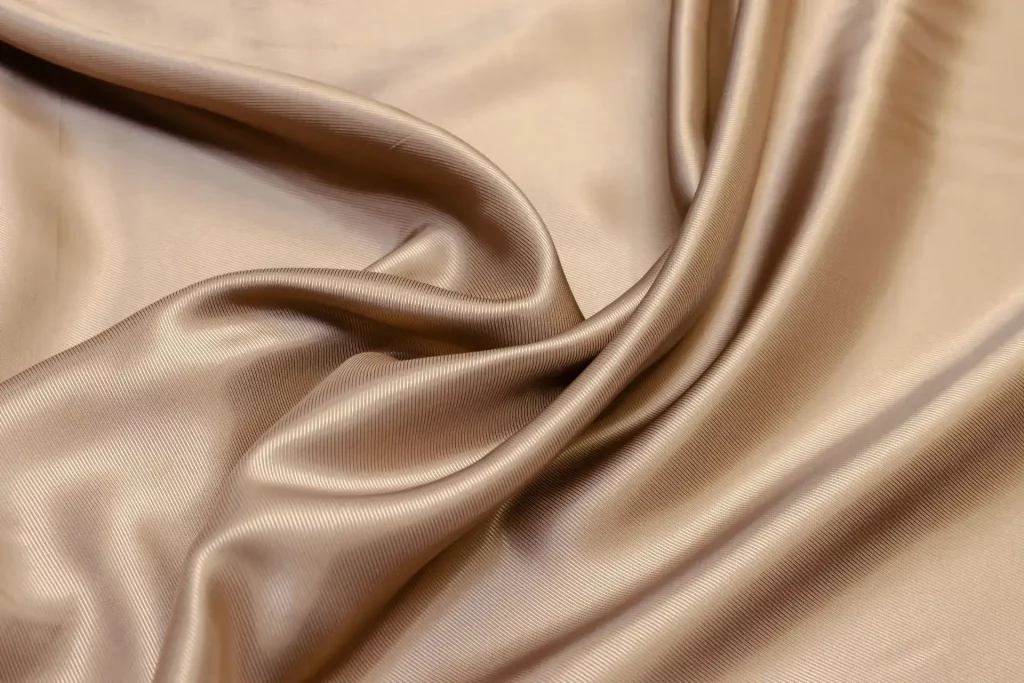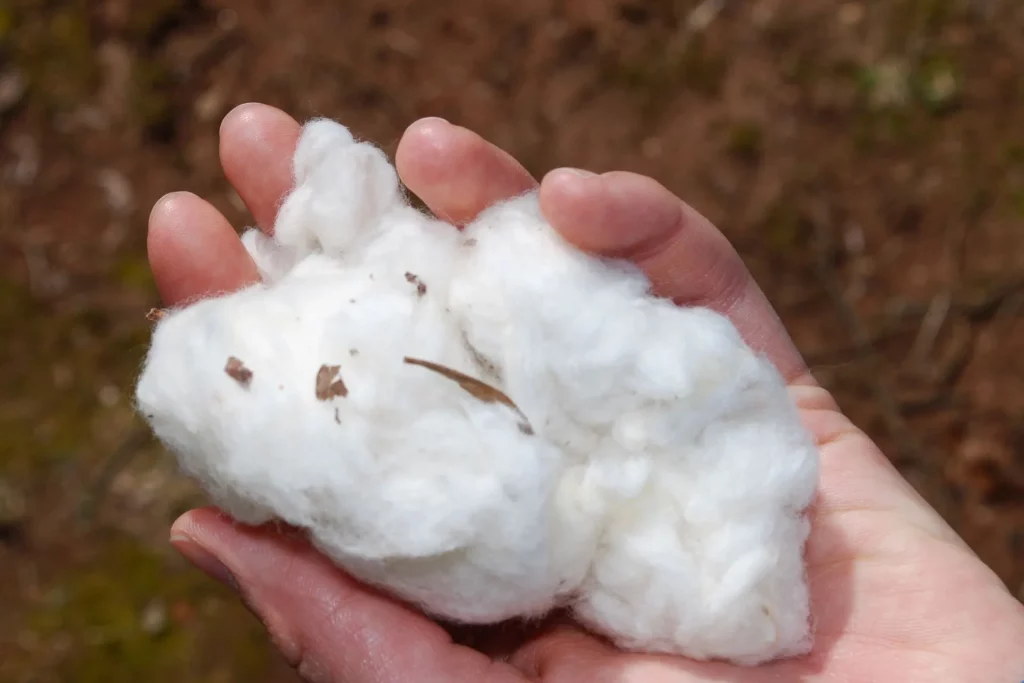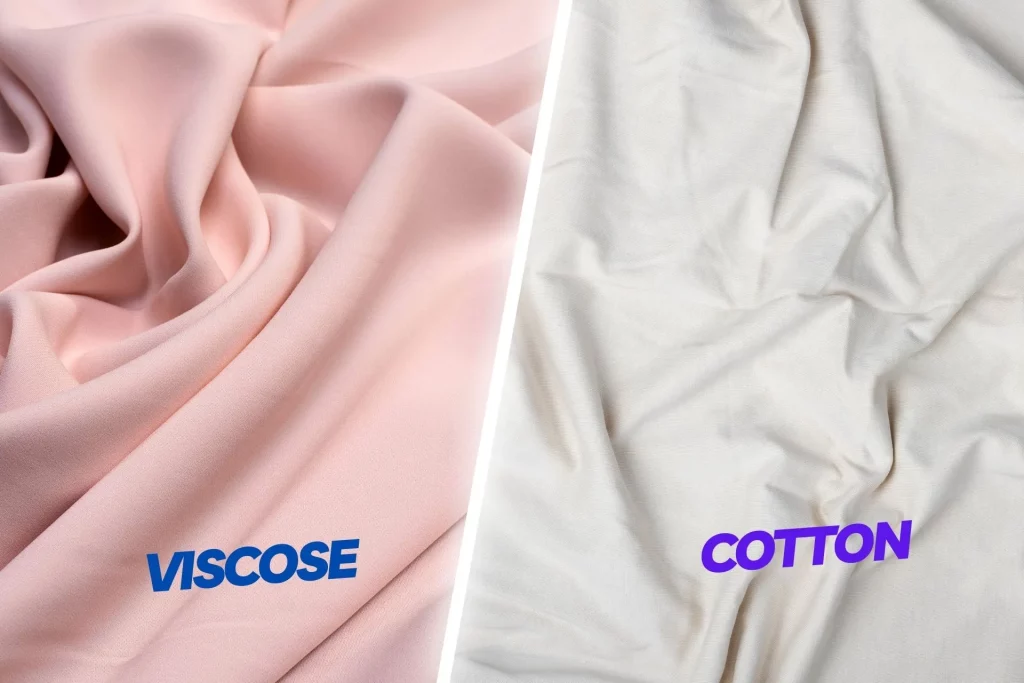In a world where fashion and sustainability collide, the quest for the perfect fabric can be overwhelming. The battle between Viscose and cotton unfolds as you search for the ideal textile. Deep within, a genuine problem arises—how can one choose wisely while adhering to their values? Delve into the intricacies of these two materials, exploring their environmental impact, comfort, and durability. Join the journey as we unravel the threads of this fabric dilemma, guiding you toward an unsettling choice that reflects your conscience and style.
In the textile business, cotton and viscose are both commonly used textiles. In contrast to viscose, which is a semi-synthetic fabric, cotton is a natural fiber. To choose the right fabric for its intended uses, customers, designers, and manufacturers must be aware of the differences between various materials.
Table of Contents
Viscose: Characteristics and Benefits

What is Viscose and it’s Cultivation?
Viscose, also known as rayon, is a fabric made from regenerated cellulose fibers. It is produced by treating cellulose with chemicals and turning it into a soluble compound. The resulting solution is extruded through fine holes to form fibers, then spun into yarns. This process gives Viscose its soft and silky texture.
The following are the characteristics of Viscose:
- Softness and Comfort
Viscose fabric is known for its exceptional softness and comfort. It offers a velvety feel on the skin, making it a preferred material for lingerie, dresses, and other garments. The smooth texture of Viscose lends itself well to draping and flowing designs.
- Breathability and Moisture Absorption:
One of the advantages of Viscose is its breathability and moisture absorption properties. The fabric circulates air, making it suitable for warm weather and active lifestyles. Viscose can absorb and release moisture quickly, keeping the wearer cool and dry.
- Versatility and Drape:
Viscose is a highly versatile fabric that can imitate the appearance of other fabrics like silk, cotton, or linen. It is frequently used in designs and patterns and maybe dyed in various colors. Viscose also has excellent draping qualities, making it ideal for creating garments with fluidity and movement.
Pros and Cons of the Viscose:
Pros:
- Viscose fabric is known for its luxurious softness, providing a comfortable wearing experience.
- Viscose has good breathability, allowing air circulation and keeps the wearer cool in warm weather.
- Viscose can absorb and release moisture quickly contributing to a dry and comfortable feel.
- Viscose is a versatile fabric that can imitate the appearance of other fabrics offering a wide range of design options.
- Viscose has excellent draping qualities, making it ideal for creating garments.
Cons:
- Viscose fabric tends to wrinkle easily, requiring proper care.
- Viscose is generally less durable than and may not withstand heavy wear or frequent washing as well.
- Viscose often requires special care to maintain its shape and integrity.
- The production of Viscose involves the use of chemicals, which can have environmental implications if not managed responsibly.
Cotton: Characteristics and Benefits

What is Cotton and its Cultivation?
Cotton is a natural fiber made from the cotton plant’s seeds. It is a staple fiber, meaning it has a relatively short length compared to other fibers. The cultivation of cotton extends back thousands of years and is renowned for its softness, breathability, and durability.
The following are the characteristics of cotton:
- Natural Fibers and Environmental Sustainability
One of the significant advantages of cotton is its natural origin. Being a plant-based fiber, it is biodegradable and environmentally friendly. Even more sustainable advantages are provided by organic cotton, which is farmed without synthetic pesticides or fertilizers.
- Durability and Longevity
Cotton is known for its durability and long lifespan. It can withstand regular wear and tear, making it a preferred choice for garments that require frequent washing or heavy use. Cotton fibers are strong and can retain their shape even after multiple washes.
- Allergy-Friendly and Hypoallergenic
Cotton is hypoallergenic and well-tolerated by most individuals, including those with sensitive skin or allergies. It has low skin reactivity and is less likely to cause irritation or adverse reactions. This makes cotton an excellent option for people with skin sensitivities.
There are multiple fabric choices when it comes to cotton, and each type possesses distinct properties and requires specific washing techniques. If you own Egyptian cotton sheets, be sure to utilize the correct method.
Pros and Cons of the Cotton:
Pros:
- Cotton is a biodegradable and environmentally friendly natural fiber.
- Cotton is known for its softness and natural texture, providing comfort against the skin.
- Cotton has excellent breathability making it suitable for hot and humid climates.
- Cotton fibers can absorb moisture efficiently.
- Cotton is highly durable and suitable for long-lasting garments.
Cons:
- Cotton fabric is prone to wrinkling, requiring ironing or steaming to maintain a smooth appearance.
- Cotton can shrink when exposed to high heat or improper washing and drying techniques.
- Cotton has a more limited range of textures compared to Viscose.
- High-quality cotton fabrics can be more expensive, and the availability of certain cotton varieties may be limited in some regions.
Remember to consider these pros and cons when choosing between viscose and cotton to determine which fabric best suits your needs and preferences.
Viscose vs. Cotton: A Comparison

When choosing between Viscose and cotton, it’s essential to consider various factors to determine which fabric best suits your needs. Let’s compare these two fabrics based on specific aspects:
Comfort and Feel
Viscose fabric offers a luxurious and silky feel against the skin, providing exceptional comfort. Cotton, on the other hand, has a soft and natural texture. Both fabrics are comfortable to wear, but the choice depends on personal preferences and the desired tactile experience.
Breathability and Moisture Management
Viscose and cotton are breathable fabrics, allowing air circulation and heat dissipation. However, cotton has better moisture absorption properties than Viscose. Cotton can absorb sweat and moisture, keeping the body cool and dry, making it a preferred choice for hot and humid climates.
Environmental Impact
Cotton, especially organic cotton, has a lower environmental impact compared to Viscose. Viscose production involves using chemicals, which can have adverse effects on the environment if not managed properly. However, advancements in sustainable viscose production methods have led to the availability of eco-friendly options.
Durability and Care
Cotton is generally more durable and resilient than Viscose. It can withstand frequent washing and maintain its shape and integrity over time. Viscose, however, is more delicate and may require special care, such as handwashing or dry cleaning, to ensure its longevity.
Price and Availability
Cotton is widely available and more affordable compared to Viscose, especially high-quality viscose fabrics. Cotton is a popular material for a variety of uses, from everyday garments to domestic textiles, because of its availability and low cost.
Factors to Consider when Choosing between Viscose and Cotton:
When deciding between Viscose and cotton, several factors should be taken into account:
Purpose and Intended Use
Think about the fabric’s function and intended application. Are you looking for fabric for clothing, home textiles, or other applications? Viscose’s softness and drape make it suitable for flowing garments, while cotton’s durability and breathability make it ideal for everyday clothing.
Climate and Weather Conditions
Take into account the environment and weather where the cloth will be utilized. Cotton’s moisture absorption properties make it a good choice for hot and humid climates. Viscose’s breathability is also advantageous in warm weather, but it could be less successful than cotton at controlling moisture.
Personal Preferences and Allergies
Consider your personal preferences, tactile experience, and any allergies or sensitivities you may have. Cotton’s hypoallergenic properties make it a safer option if you have sensitive skin or allergies. However, Viscose may be more appealing if you prefer a luxurious feel.
Budget and Availability
Consider your budget and the availability of the fabrics. Cotton is generally more affordable and widely accessible. Viscose fabrics can vary in price, with high-quality options being more expensive. Assess your budget and determine the best balance between quality and affordability.
Applications and Uses
Viscose and cotton have diverse applications in various industries. Here are some common use cases for both fabrics:
Clothing and Apparel
Viscose is often used in the production of dresses, blouses, skirts, and lingerie due to its softness and drape. Conversely, cotton is widely used in t-shirts, jeans, casual wear, and undergarments, thanks to its durability and breathability.
Home Textiles and Furnishings
Cotton is frequently used in bedding, towels, curtains, and upholstery due to its comfort and natural properties. Viscose finds its place in home textiles like curtains, drapes, and decorative fabrics, offering a luxurious touch.
Industrial and Medical Applications
Viscose has applications beyond the realm of fashion and home textiles. It serves a purpose in the production of industrial goods such as tire cords, upholstery padding, and filtration materials. Viscose is used in products like surgical gowns, wound dressings, and absorbent pads in the medical field.
Frequently Asked Questions:
Is Viscose a natural fabric?
No, Viscose is not a natural fabric. It is a semi-synthetic fabric made from regenerated cellulose fibers.
Can cotton shrink after washing?
Yes, cotton can shrink after washing, especially if exposed to high heat or improper washing techniques. It is recommended to follow the proper instructions provided with the garment to minimize shrinkage.
Which fabric is more suitable for hot weather?
Viscose and cotton are suitable for hot weather, but cotton’s moisture absorption properties make it a better choice for managing sweat and keeping the body cool.
Does Viscose wrinkle easily?
Viscose fabric has a tendency to wrinkle more easily compared to cotton. Handling viscose garments with care and following proper laundering techniques to minimize wrinkling is recommended.
Can cotton be blended with other fibers?
Yes, cotton can be blended with various other fibers, such as polyester or elastane, to enhance its properties. Blending cotton with synthetic fibers can improve durability, elasticity, and wrinkle resistance.
Conclusion:
Viscose and cotton are both versatile fabrics with distinct characteristics and benefits. Understanding their differences is essential when choosing the right fabric for your specific needs. Consider factors such as comfort, breathability, environmental impact, durability, and personal preferences to make an informed decision. Whether you opt for the luxurious feel of Viscose or the natural properties of cotton, both fabrics offer a wide range of applications. They can contribute to creating functional and aesthetically pleasing textiles.

